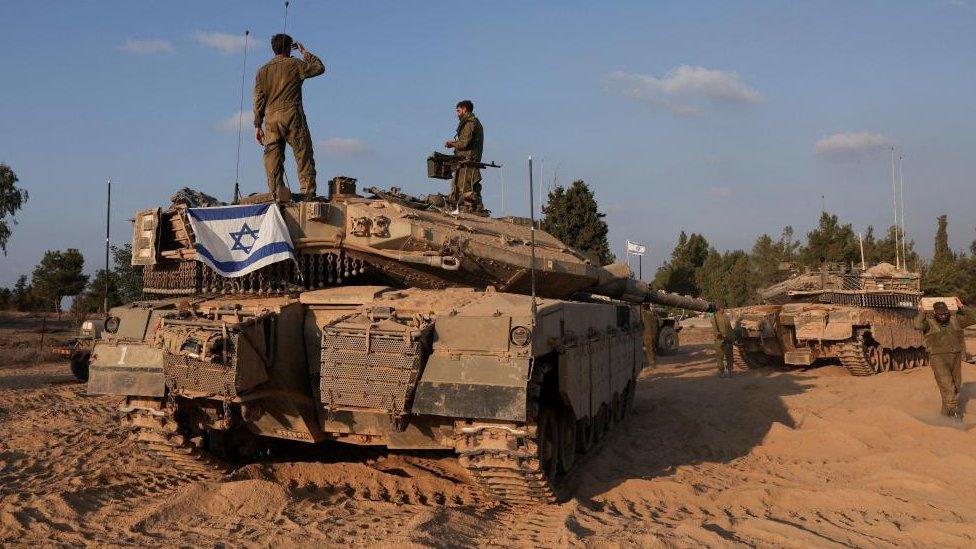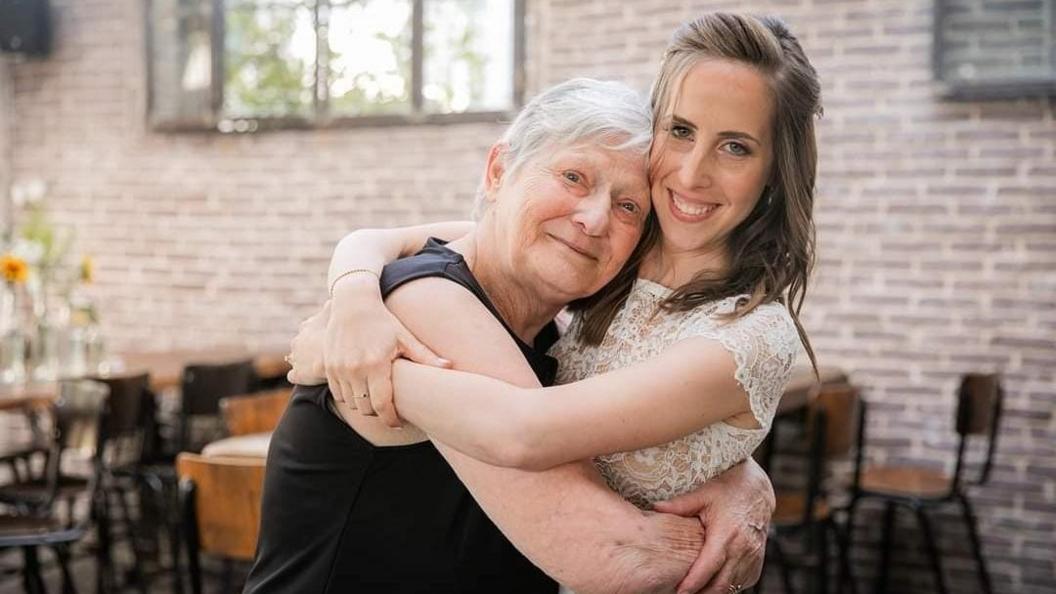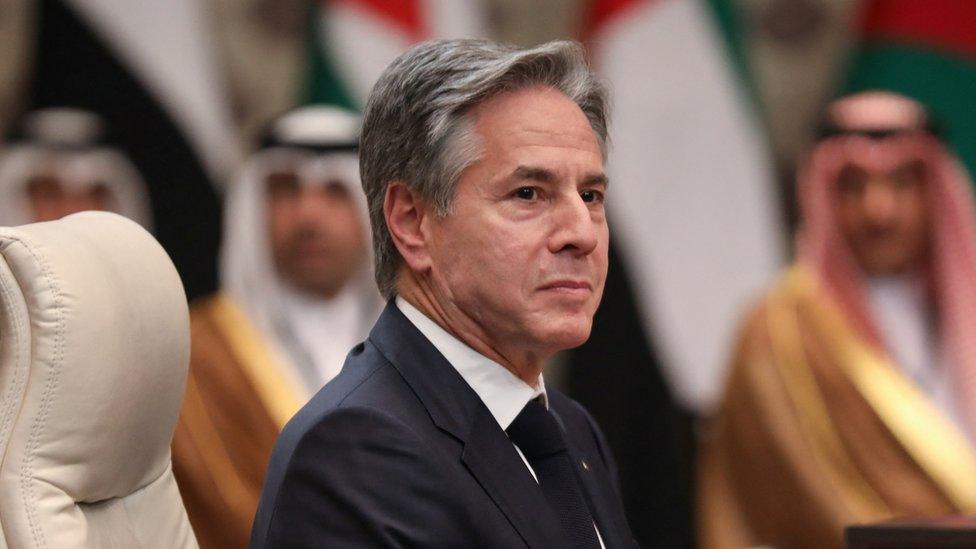Netanyahu says Israel will have security control over Gaza after war
- Published

Israel says the objective of its forces is to remove Hamas from power in Gaza
Prime Minister Benjamin Netanyahu has said Israel will have "overall security responsibility" for the Gaza Strip "for an indefinite period".
Mr Netanyahu's first comments on Israel's plan for Gaza after the war came in an interview with the ABC News network in the US.
However, he did not elaborate on the kind of security mechanism such a plan would involve.
Israel says it aims to destroy Hamas, which has ruled Gaza since 2007.
Hundreds of Hamas gunmen burst through the border and attacked Israeli communities and a music festival on 7 October, killing more than 1,400 people, Israeli authorities say, in the bloodiest such event in Israel's history.
Hamas - proscribed as a terrorist organisation by Israel and many Western governments, including the UK - also took 242 people hostage, the Israeli military says.
Israel declared war on Hamas the same day and has been attacking Gaza from land, sea and air since then.
The Hamas-run health ministry in Gaza says more more than 10,000 people have been killed since Israel began its operation.
When asked who should govern Gaza - home to 2.2 million Palestinians - after the war, Mr Netanyahu said only "those who don't want to continue the way of Hamas".
But he also declared that Israel must have security control.
"I think Israel will, for an indefinite period, have the overall security responsibility, because we have seen what happens when we don't have it.
"When we don't have that security responsibility, we have the eruption of Hamas terror on a scale that we couldn't imagine."

More on Israel-Gaza war
Follow live: Latest updates
Analysis: Jeremy Bowen's five new realities after four weeks of war
History behind the story: The Israel-Palestinian conflict

Before the war, Israel - along with Egypt, which also shares a border with Gaza - blockaded the territory to try to stop weapons reaching the militant Islamist group and prevent it from carrying out attacks.
Israel also controlled its border with Gaza, as well as Gaza's air space and shoreline, implementing a strict security regime and allowing in only certain vetted goods, as well as food, fuel and medicine. Imports were often halted after attacks from the territory.
Despite Israel's controls, Hamas and other armed groups have frequently carried out attacks against it, with Israel repeatedly hitting Gaza with air strikes in response.
Although it is unclear what type of security control Mr Netanyahu envisages, any return to long-term occupation on the ground is likely to be opposed by the international community.
One week after the war began, US President Joe Biden said a re-occupation by Israel of Gaza would be "a big mistake".
Although Israel pulled its troops and settlers out of Gaza in 2005, the UN considers the territory as remaining under Israeli occupation.
- Published6 November 2023

- Published6 November 2023

- Published4 November 2023
